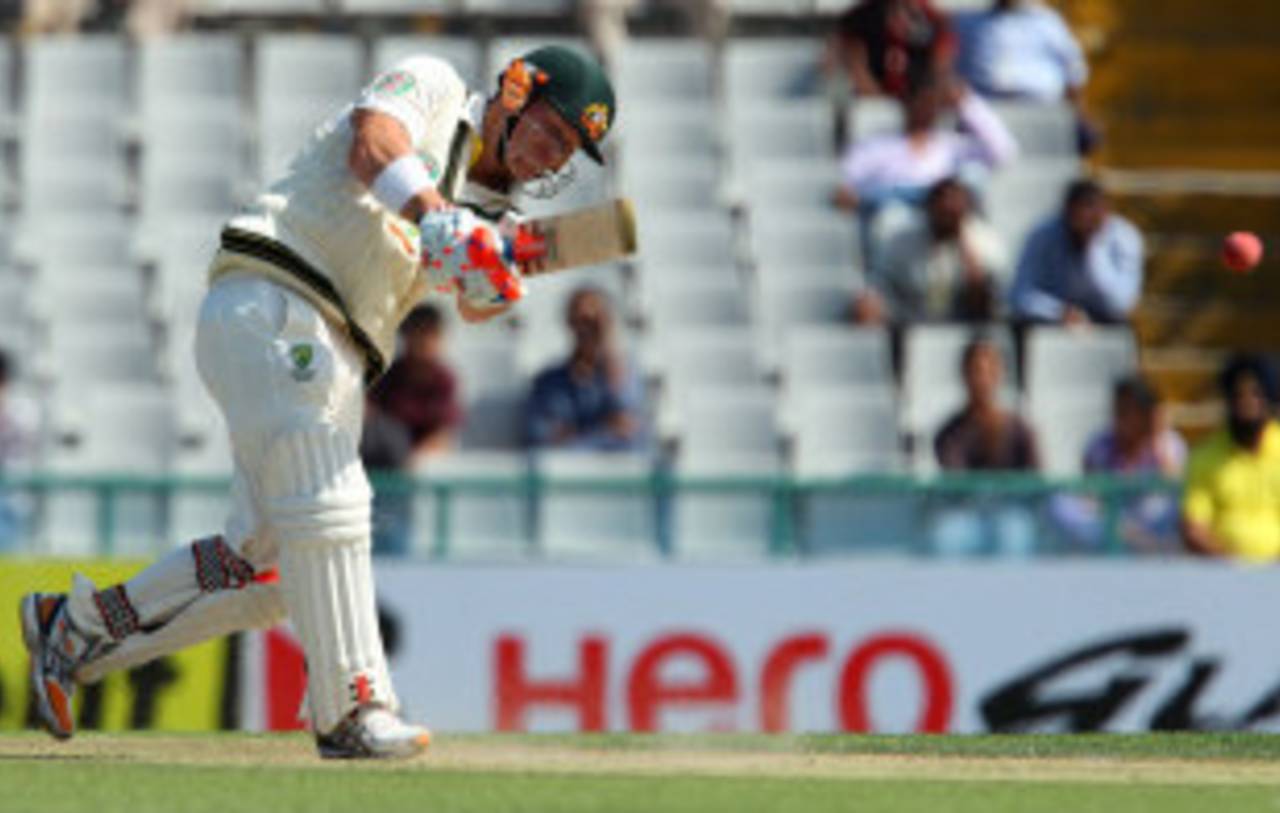Apart from playing an aggressive brand of cricket, Australian teams have been renowned over the years for producing fast bowlers, young strokeplayers, wily legspinners and strong captains.
A spate of losses in India, a dearth of young stroke-making batsmen, and a bare cupboard when it comes to international-standard wristspinners, has Australia currently clinging hopefully to a good stock of fast bowlers and a tactically brilliant skipper. However, Michael Clarke's first Test match missed through injury has shown up the fact that Australia might also be struggling in the captaincy department if Clarke's baulky back restricts his playing future.
One of the more remarkable statistics in Australian cricket is the miniscule number of players who have been elevated to the captaincy. In 136 years of Test cricket, Shane Watson's appointment made it only 44. That means on average each Australian captain has had a span of around three years. Compare that with England, who in the same period have had 79 captains, equating to an average span of just over a year and a half for each.
A critical factor in choosing a Test captain is that he must be a permanent member of the side. Even though he's a talented cricketer, Watson would be lucky to his hold his spot on current form in a stronger Australian side. Throw in the fact that he was suspended for the previous Test for indiscipline and the picture regarding future Australian captains looks distinctly murky.
Let's say Clarke's terminally bad back allows him to perform his duties fully for another four years. Who in the current squad are the next full-time captaincy candidates?
The next captain would have to come from among David Warner, Matthew Wade, Steven Smith, Phillip Hughes or Moises Henriques. Now that sounds like an impressive list - most teams would be delighted to have five captaincy candidates in the touring party. However, on closer inspection the picture resembles a Romano rather than a Rembrandt, as none of those five choices has established himself as a Test player so far.
Wade and Warner are probably closest to that definition but they have drawbacks. Wade is a keeper and traditionally they are shunned as Australian captains, except in the fill-in category. Warner is an all-or-nothing batsman and this can create its own difficulties. It's hard to say to the rest of line-up: "Get your head down", when you've just holed out at third man in the first over.
Still, I wouldn't write off Warner as he will naturally become a little more conservative with age. Les Favell, the only first-class captain I played under, was very successful even though his approach to opening the batting made Warner look like a stonewaller.
Of those five candidates Warner and Smith seem to have the best tactical credentials on the evidence so far.
The real concern for Australian cricket is the failure of the system to throw up talented young batsmen. It is from this group that the bulk of the leaders arise, for the simple reason that the captain is usually a batsman and around the age of 27 is the ideal time to take over the leadership role. If a captaincy candidate comes into the Test side at around 20, hopefully he has matured, both as a cricketer and as a person, by the time he reaches his peak playing years.
Cracks have slowly been appearing in Australian cricket since the departure of Shane Warne and Glenn McGrath. However, the damage that has been inflicted by MS Dhoni and his men has turned it into a dire situation. When it comes to potential captains, young strokemakers and wristspinners, there are too many holes in the Australian dam and not enough fingers to go round.
Former Australia captain Ian Chappell is now a cricket commentator for Channel 9, and a columnist
